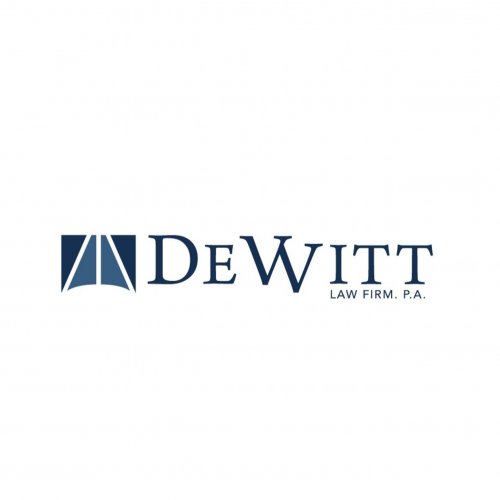Best Housing, Construction & Development Lawyers in Tampa
Share your needs with us, get contacted by law firms.
Free. Takes 2 min.
Free Guide to Hiring a Real Estate Lawyer
List of the best lawyers in Tampa, United States
About Housing, Construction & Development Law in Tampa, United States
Housing, Construction & Development Law in Tampa, United States refers to the legal framework that governs the various aspects of housing, construction, and development activities within the city. These laws are designed to ensure the safety of structures, promote sustainable development, and protect the rights of both property owners and tenants.
Why You May Need a Lawyer
There are several situations where you may require legal help in Housing, Construction & Development:
- Disputes with contractors or builders
- Zoning and land use issues
- Negotiating contracts for construction projects
- Tenant-landlord disputes
- Building code violations
Local Laws Overview
In Tampa, United States, the local laws relevant to Housing, Construction & Development cover a range of topics including:
- Building codes and permits
- Land use regulations and zoning ordinances
- Tenant rights and eviction procedures
- Construction contracts and warranties
- Property maintenance requirements
Frequently Asked Questions
1. Can a landlord evict a tenant without a valid reason?
In Tampa, United States, a landlord can only evict a tenant for specific reasons outlined in the local laws. These may include non-payment of rent, violation of lease terms, or criminal activity.
2. How can I ensure my construction project complies with local building codes?
To ensure compliance with local building codes in Tampa, United States, it is advisable to work with a qualified and licensed contractor who is familiar with the relevant regulations. Additionally, obtaining the necessary building permits is crucial for compliance.
3. What steps can I take if my contractor fails to complete the construction project as agreed?
If your contractor fails to complete the construction project as agreed, you can consider sending a written notice of breach, terminating the contract, and seeking legal remedies such as filing a lawsuit for damages.
4. Can I convert my property to a different land use without obtaining permission?
In Tampa, United States, changing the land use of a property typically requires obtaining permission from the local zoning authority. Failure to do so may result in legal consequences and enforcement actions.
5. What are my rights as a tenant if my landlord fails to make necessary repairs?
If your landlord fails to make necessary repairs, you may have the right to withhold rent, deduct the cost of repairs from the rent, or in some cases, terminate the lease agreement. It is advisable to consult with a lawyer to understand your specific rights and obligations.
Additional Resources
If you need legal advice or further information on Housing, Construction & Development Law in Tampa, United States, consider reaching out to the following resources:
- Tampa Housing Authority
- Tampa Department of Construction and Development
- Tampa Bar Association
Next Steps
If you require legal assistance in Housing, Construction & Development, the first step is to consult with a qualified attorney who specializes in this field. They will be able to assess your specific situation, provide guidance, and represent your interests if necessary. It is important to act promptly to protect your rights and ensure the best possible outcome.
Lawzana helps you find the best lawyers and law firms in Tampa through a curated and pre-screened list of qualified legal professionals. Our platform offers rankings and detailed profiles of attorneys and law firms, allowing you to compare based on practice areas, including Housing, Construction & Development, experience, and client feedback.
Each profile includes a description of the firm's areas of practice, client reviews, team members and partners, year of establishment, spoken languages, office locations, contact information, social media presence, and any published articles or resources. Most firms on our platform speak English and are experienced in both local and international legal matters.
Get a quote from top-rated law firms in Tampa, United States — quickly, securely, and without unnecessary hassle.
Disclaimer:
The information provided on this page is for general informational purposes only and does not constitute legal advice. While we strive to ensure the accuracy and relevance of the content, legal information may change over time, and interpretations of the law can vary. You should always consult with a qualified legal professional for advice specific to your situation.
We disclaim all liability for actions taken or not taken based on the content of this page. If you believe any information is incorrect or outdated, please contact us, and we will review and update it where appropriate.










